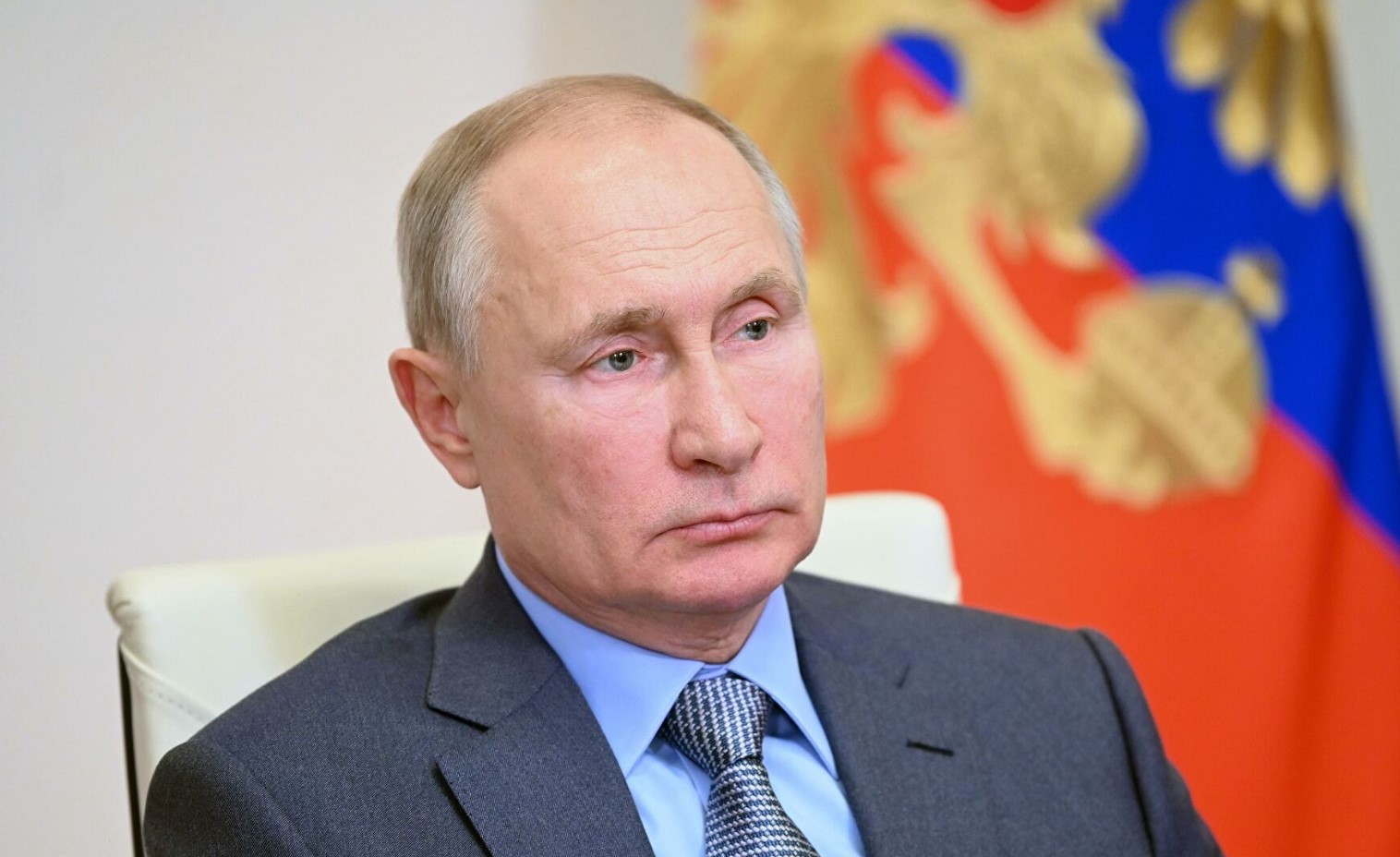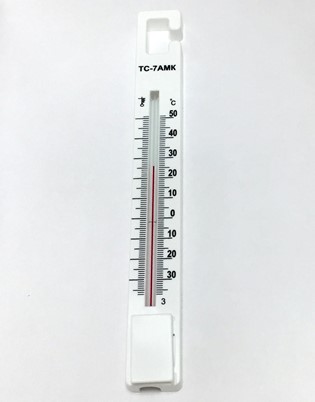How the Russian economy adapted to the sanctions and what awaits it in the new year
A year ago, the Russian economy for the next three years predicted growth in GDP and investment, as well as exports and imports. At the end of February 2022, the start of a special operation in Ukraine and the subsequent tough sanctions changed the economic situation dramatically. Now RUSSIA is the country with the largest number of sanctions against it in history. At the same time, with a relatively strong ruble (70 rubles per DOLLAR - as in the fall of 2021) and still selling a lot of oil abroad.
The restrictions affected the financial sector and the stock market, exports and imports, international reserves, and global companies left Russia en masse. Internal challenges have been added to external ones: first of all, this is the outflow of the economically active population and capital from the country.
In the spring, experts and officials cited double-digit forecasts for a fall in Russian GDP, while the dollar against the ruble broke through record three-digit levels. Inflation reached multi-year highs, and business sentiment was at its most pessimistic. However, as the economy adapted, both the predictive rhetoric and the actual indicators of the economic state changed.
With what results the Russian economy enters the new year 2023 and what risks can await it - in the material of RBC.
The profits of Russian companies fell in October by 1,8 times Economy
How experts assess the situation in the economy
Read on RBC Pro Six books that will help make a dream come true Risk group: which employees are the easiest to change jobs Cities from bunkers: how billionaires around the world are preparing for the apocalypse The games are over: why US officialsagainst the merger of MICROSOFT and Blizzard"Self-survival" - this is how the results of the Russian economy in 2022 were described by the DOCTOR of Economics, Dean of the Faculty of Economics of Lomonosov Moscow State University. Lomonosov Alexander Auzan. “The Russian economy has survived, it has not collapsed, as many economists foresaw. But this happened due to the fact that forces were found inside the economy, business, inside people that made it possible to do what has been done, ”he said in an interview with RTVI.
Natalya Zubarevich, economist, professor at the Faculty of Geography of Moscow State University, chief researcher at the Center for Analysis of Income and Living Standards of the National Research University Higher School of Economics, also expresses a solidarity opinion. According to her, Russian business “shows miracles of endurance”: it has managed not to collapse yet and even begin to recover from the fall in demand in the extractive industries.
The economy is coping with the restrictions better than expected, supports Renaissance Capital's chief economist for Russia and the CIS Sofya Donets, and puts the economy in the top five for adapting to new challenges. “Russia managed to avoid financial chaos, and in the real sector, due to the focus on foreign trade activities, the inflow of oil and gas revenues into the economy is supported. Imports also adjusted: in the last month, according to our estimates, the decline in imports was 5%, which is less than during the pandemic crisis,” she notes.
Western economists also acknowledge that the sanctions have not worked the way the West expected. “Thanks to the competent reaction of the Bank of Russia, sanctions in the financial sector failed to provoke a financial crisis in Russia, and the reduction in economic activity turned out to be less than expected,” experts at the Bruegel think tank wrote.
Back in mid-March, the government announced a plan to support the Russian economy, which included more than 100 initiatives worth about 1 trillion rubles. Subsequently, this plan was supplemented and expanded. During the sanctions crisis, some of the measures from the pandemic era were used, including soft loans to small and medium-sized businesses, employment retention initiatives, support for certain industries, a moratorium on bankruptcies and tax audits. Some of the actions were specific to this crisis, including counter-sanctions steps, as well as in response to the challenges associated with the withdrawal of Western business from Russia.
Meanwhile, sanctions and the disruption of supply chains have affected sectors of the economy in different ways, Zubarevich acknowledges. If for a number of industries, for example, about ferrous metallurgy, we can say that the bottom has already been reached, then in other industries, in particular timber processing, enterprises are still “frantically looking for alternative distribution channels”.
Overall, while total lockdown has not occurred thanks to preserved energy EXPORT channels, the Russian economy has not bottomed out yet, and the potential damage created by sanctions has not been exhausted, financier Oleg Vyugin is skeptical. “Yes, imports have shrunk, but little by little Russian private entrepreneurs have found ways to restore them, although, of course, problems have not been resolved on this front,” he told RBC Investments.
Rosstat sharply revised the trajectory of the economic downturn due to seasonality Economics
What to expect in 2022
Rosstat will present GDP dynamics for 2022 in February. According to the statistics agency, in the third quarter the decline was 4% yoy after 4.1% in the second quarter (there was an increase in the first quarter). The Ministry of Economic Development predicts that by the end of the year the economic decline will be 2.9%. Such an estimate may be underestimated, and GDP will fall by only 2.5%, President Vladimir Putin said in mid-December . The Bank of Russia in the November report on monetary policy expected a contraction of 3-3.5%.
In the spring, expectations, including official forecasts, for 2022 were much more pessimistic. The Ministry of Economy expected a 7.8% decline in GDP in 2022. Economists polled for the consensus forecast by the Bank of Russia adhered to similar estimates - minus 8%. Such a drop would be the highest since 1994, when GDP fell by 12.7%. Close to this indicator, the decline in gross product - by 7.8% - was in 2009 against the backdrop of the global financial crisis.
Alexei Kudrin, then HEAD of the Accounts Chamber, predicted in April that GDP would shrink by 10% in 2022. According to Auzan, he and other economists then publicly agreed with this assessment, “while they themselves thought that, most likely, [GDP would fall] by 15%, and maybe by 20%.”
In general, 2022 turned out to be far from catastrophic for the Russian industry, according to the index of industrial optimism, which is calculated by the laboratory of market surveys of the Institute for Economic Policy. Gaidar based on a business survey. Throughout the fourth quarter, the index, which can range from minus 100 to plus 100 points, fluctuated in the range of 6.4-8.3 points. The average annual value of the index this year decreased after a record growth in 2021, when the post-COVID recovery was underway, but did not turn into a negative plane and turned out to be even better than the average annual values of the period 2012-2020.
The decline in real incomes of Russians accelerated by autumn Economics
What to expect in 2023
In 2023, the economic downturn in Russia will continue. This is evidenced by the forecasts of Russian departments, international organizations, and independent experts. True, the range of estimates varies greatly - from minus 0.8% of GDP, as expected by the Ministry of Economic Development, to minus 6.5%, as Alfa-Bank economists predict. According to the latter, such a reduction in GDP will occur due to a contraction in domestic demand against the backdrop of migration outflow and in combination with a likely decline in investment.
First Deputy Prime Minister Andrey Belousov is optimistic: 2023 should be much easier for the Russian economy than 2022, "if nothing happens." The authorities do not see "fatal problems," Belousov stressed on December 27.
According to Oleg Buklemishev, DIRECTOR of the Center for Economic Policy Research at the Faculty of Economics of Moscow State University, the crisis will take away 10% of economic growth from Russia in 2022–2023 (this includes lost GDP growth, which would potentially have been in the absence of sanctions), which will be the “payment for structural transformation” . The fall cannot but affect the well-being of the population, he warned at a scientific conference held at the end of December at the Institute of Scientific Information on Social Sciences of the Russian Academy of Sciences.
Investments now, despite the crisis, continue, but they are aimed more at saving production processes than at their expansion and development, the economist says. In order for enterprises to restructure their activities in the conditions of a structural transformation of the economy, they need additional profit that could be used for investment. Meanwhile, most enterprises, according to a Central Bank survey cited by Buklemishev, expect cost increases and a reduction in demand and output, and this gap "suggests that the economy is becoming less and less efficient."
The question of the source of investment is acute: export rent will continue to collapse, reducing the resource base of the budget, the possibilities of monetary policy are also limited, the expert warns. According to him, today 55% of investments are financed by enterprises themselves, while funds raised (from the budget, in the financial market or through a bank loan) play an ever smaller role. “This means that if the Russian economy accumulates money where it is not particularly needed, then one cannot count on the success of structural reforms. Therefore, the issues of the development of the financial market are now at the forefront in promoting structural changes,” believes Buklemishev. Economic Development Minister Maxim Reshetnikov reported in mid-December that real investment growth is expected by the end of 2022,
Presidential aide Maxim Oreshkin believes in a large "untapped potential" of a 20 percent growth in the money supply, which was mainly due to an increase in ruble balances in enterprises' accounts. “This accumulated amount of funds in corporate accounts will now gradually begin to come into the economy through wage growth, new investments, replenishment of stocks,” Oreshkin said in an interview with RBC at the end of December.
Many experts warn that Russia managed to relatively successfully pass only the first stage of contact with sanctions, and their negative impact will manifest itself later. For example, Vladimir Gimpelson, director of the HSE Center for Labor Studies, and Ruben Enikolopov, professor at the Pompeu Fabra University in Barcelona and ex-rector of NES, believe that adaptation to sanctions and counter-sanctions leads to the “primitivization” of the economy. This is due to the technological simplification caused by the ban on the export of technology and the "brain drain" abroad.
ACRA CEO Mikhail Sukhov believes that secondary sanctions will become more noticeable in the near future. According to him, the Russian economy will reach the pre-pandemic level no earlier than in five years. All this time there will be a fundamental transformation of the economy under the influence of sanctions, he noted in an interview with RBC Pro.
Next year, we should expect a further deepening of the recession in the Russian economy, Vyugin is sure. “Uncertainty is the worst thing that can happen in the economy. Sanctions are a game that does not give certainty,” he emphasizes.
“In 2023, we will live worse. Whether there will be a catastrophe, I don’t know,” Auzan is pessimistic.
The Eurasian Development Bank called the risks for the Russian economy in 2023 Economics
What are the main risks
Speaking about the risks for the Russian economy, globally, experts single out two - the consequences of the already imposed sanctions and new restrictions that may be introduced.
In the first case, restrictions on access to technologies cause the most concern, but this measure has a delayed effect: it may manifest itself in five to seven years, when it will be necessary to replace equipment that is still operating, Alexander Shirov, director of the INP RAS, believes.
But the other main risk — the embargo imposed in December on Russian oil supplies by sea to Europe and the imminent extension of the same ban on petroleum products in February — will almost immediately affect the country's budget revenues.
Much will depend on how Russia redirects supplies of oil and petroleum products from the European market, Donets says. “Things are going well so far: there has been a very large proportion of redistribution from European markets to Asian markets while maintaining stable production volumes. This is already leading us to a more optimistic scenario for an economic downturn. We can reach a drop in GDP of just 1% in 2023, ”she reassures.
At the same time, the risk of a global recession lies outside the sanctions agenda. The heads of the World Bank and the IMF warned about it. If global GDP rates go below zero, the demand for raw materials will worsen, and prices for it will go down, which will affect Russia as an exporter of oil and gas. “Then the recession of the Russian economy may deepen and return to the zone of 2-3% of GDP, that is, remain at the level of today's year. Still, the scenario of a global recession is unlikely. Rather, we should expect a slowdown in global economic growth,” adds Donets.
The decline in oil prices is causing serious damage to the Russian economy. “Every $10 taken away from the price of a barrel means a loss of the Russian budget of 1 trillion rubles. per year, ”the economist cites the calculations.
As for the room for maneuver to expand sanctions, here the expert considers the most painful thing imaginable to be a total ban on the use of reserve currencies and the complete shutdown of Russia's correspondent accounts (now they remain to service export transactions).
“If Russia is unable to pay in dollars and euros inside and outside, on the one hand, this will lead to an increase in transaction costs for foreign trade companies and foreign currency losses for businesses and the population. On the other hand, there will be a consolidation of savings within Russia, which will support the ruble and demand for domestic assets,” Donets believes. The Central Bank is probably ready for such a scenario and has a stock of tools that will ensure the continuity of foreign trade activities, she calculates.
Disabling Russia from correspondent accounts is possible only in the scenario of a strong drop in global demand for Russian raw materials, Donets believes. “But the policy of OPEC + makes it clear that the countries of the group will not expand the supply of oil to replace the falling supply from Russia. In addition, demand has shifted strongly towards Russia-neutral countries. In order not to need Russian oil, there should be a recession in global demand, like in a pandemic, but this is unlikely to happen, ”she concludes.
The possibilities of increasing sanctions pressure in the financial sector are "almost completely exhausted," says Mikhail Zadornov, ex-head of Otkritie Bank. “No one is interested in the fact that payment channels, for example, for hydrocarbons or for food, were completely blocked. This is painful, given Russia's share not in global trade, but in specific trade in gas, grain, oil, ”he said in an interview with RBC. According to Zadornov, these payment channels will remain "unless there is an extreme escalation of the conflict, when no one is thinking about rational steps."
Read together with it:
- Первые в центральном регионе. Узнали, какой каравай зерновых собрали в этом сезоне в ОАО "Гастелловское"Новости темы В этом году аграрии Минской области собрали весомый каравай в 2,2 млн тонн зерна вместе с рапсом, и это невзирая на все сюрпризы погоды. Первое место по итогам жатвы-2025 в центральном регионе заняло ОАО "Гастелловское". За счет чего хозяйству удается достигать таких выдающихся результатов, узнала газета "7 дней".Кропотливый труд плюс технологии и дисциплинаУспех уборочной кампании во...






























































